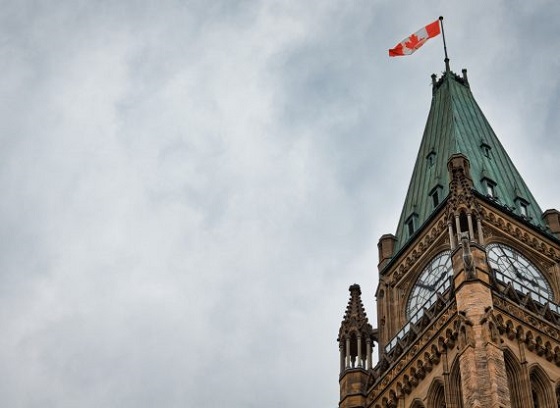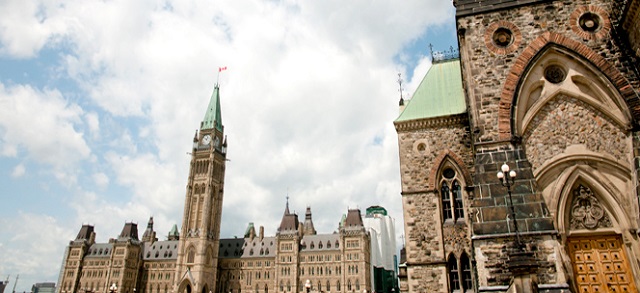Business
Singh must push Trudeau to scrap the carbon tax

From the Canadian Taxpayers Federation
Author: Franco Terrazzano
The Canadian Taxpayers Federation is urging NDP Leader Jagmeet Singh to formally call on Prime Minister Justin Trudeau to scrap the carbon tax.
“It’s good to hear Singh start to talk about opposing the carbon tax, but that’s not enough,” said Franco Terrazzano, CTF Federal Director. “Singh must prove to taxpayers he’s serious and forcefully push Trudeau to completely scrap the carbon tax.”
Today, the Globe and Mail reported that “Singh signalled his party is planning to oppose the current carbon tax on Canadian consumers.”
“We want to see an approach to fighting the climate crisis where it doesn’t put the burden on the backs of working people,” Singh said.
The carbon tax currently costs 17 cents per litre of gasoline, 21 cents per litre of diesel and 15 cents per cubic metre of natural gas. Trudeau plans to increase the carbon tax to 37 cents per litre of gasoline by 2030.
The Parliamentary Budget Officer says the carbon tax is a net overall cost for average families when all costs are included. The federal government also charges the GST on top of the carbon tax. This carbon tax-on-tax will cost taxpayers $595 million this year. That money is not rebated back to Canadians.
Opposition to the carbon tax is not new for the NDP.
“Canada is a cold place and heating your home really isn’t a choice,” said former NDP leader Jack Layton. “We shouldn’t punish people, and that’s what a carbon tax does.”
Layton did not support the Liberal carbon tax proposal in the 2008 election.
“Layton opposed the carbon tax and he was proven right at the ballot box,” said Terrazzano. “Singh needs to follow that example and fight the carbon tax to prove he cares about taxpayers.”
Business
Carney and other world leaders should recognize world’s dependence on fossil fuels

From the Fraser Institute
By Julio Mejía and Elmira Aliakbari
Simply put, despite trillions invested in the energy transition, the world is more dependent on fossil fuels today than when the United Nations launched its first COP. No wonder that ahead of COP30, leading voices of the net-zero-by-2050 agenda, including Bill Gates, are acknowledging both the vital role of fossil fuels on the planet and the failure of efforts to cut them.
On the heels of his first federal budget, which promises more spending to promote a “green economy,” Prime Minister Carney will soon fly to Brazil for COP30, the 30th United Nations climate summit. Like the former Trudeau government, the Carney government has pledged to achieve “net-zero” emissions in Canada—and compel other countries to pursue net-zero—by 2050. To achieve a net-zero world, it’s necessary to phase out fossil fuels—oil, natural gas, coal—or offset their CO2 emissions with technologies such as “carbon capture” or large-scale tree planting.
But after trillions of dollars spent in pursuit of that goal, it appears more unrealistic than ever. It’s time for world leaders, including Canada’s policymakers, to face reality and be honest about the costly commitments they make on behalf of their citizens.
For starters, carbon capture—the process of trapping and storing carbon dioxide so it’s unable to affect the atmosphere—is a developing technology not yet capable of large-scale deployment. And planting enough trees to offset global emissions would require vast amounts of land, take decades to absorb significant CO2 and risk unpredictable losses from wildfires and drought. Due to these constraints, in their net-zero quest governments and private investors have poured significant resources into “clean energy” such as wind and solar to replace fossil fuels.
According to the International Energy Agency (IEA), from 2015 to 2024, the world’s public and private investment in clean energy totalled and estimated US$14.6 trillion (inflation-adjusted). Yet from 1995 (the first COP year) to 2024, global fossil fuel consumption increased by more than 64 per cent. Specifically, oil consumption grew by 39 per cent, natural gas by 96 per cent and coal by 76 per cent. As of 2024, fossil fuels accounted for 80.6 per cent of global energy consumption, slightly lower than the 85.6 per cent in 1995.
The Canadian case shows an even greater mismatch between Ottawa’s COP commitments and its actual results. Despite billions spent by the federal government on the low-carbon economy (electric vehicle subsidies, tax credits to corporations, etc.), fossil fuel consumption in our country has increased by 23 per cent between 1995 and 2024. Over the same period, the share of fossil fuels in Canada’s total energy consumption climbed from 62.0 to 66.3 per cent.
Simply put, despite trillions invested in the energy transition, the world is more dependent on fossil fuels today than when the United Nations launched its first COP. No wonder that ahead of COP30, leading voices of the net-zero-by-2050 agenda, including Bill Gates, are acknowledging both the vital role of fossil fuels on the planet and the failure of efforts to cut them.
Why has this massive effort, which includes many countries and trillions of dollars, failed to transition humanity away from fossil fuels?
As renowned scholar Vaclav Smil explains, it can take centuries—not decades—for an energy source to become globally predominant. For thousands of years, humanity relied on wood, charcoal, dried dung and other traditional biomass fuels for heating and cooking, with coal only becoming a major energy source around 1900. It took oil 150 years after its introduction into energy markets to account for one-quarter of global fossil fuel consumption, a milestone reached only in the 1950s. And for natural gas, it took about 130 years after its commercial development to reach 25 per cent of global fossil fuel consumption at the end of the 20th century.
Yet, coal, oil and natural gas didn’t completely replace traditional biomass to meet the surging energy demand as the modern world developed. As of 2020, nearly three billion people in developing countries still relied on charcoal, straw and dried dung to supply their basic energy needs. In light of these facts, the most vocal proponents of the global energy transition seem, at the very least, out of touch.
The world’s continued reliance on fossil fuels should prompt world leaders at COP30 to exercise caution before pushing the same unrealistic commitments of the past. And Prime Minister Carney, in particular, should be careful not to keep leading Canadians into costly ventures that lead nowhere near their intended results.
Business
Liberals refuse to disclose the amount of taxpayer dollars headed to LGBT projects in foreign countries

From LifeSiteNews
The Liberal government of Prime Minister Mark Carney will not openly disclose how much money from its foreign-aid budget is going toward overseas “gender identity” and “decolonization” projects.
According to the government, there are “concerns” that disclosing the amount of funds could endanger certain LGBT organizations that get money from it.
On November 3, Global Affairs Canada, in response to a question on the order paper from a Conservative MP, said that the funding amounts could not be made public due to claimed “security concerns” and “confidentiality requirements.”
“These are the most common reasons projects are considered sensitive: the organization or individuals might be in danger if it becomes known that they are receiving funds from a foreign government; (or) implementing a project related to sensitive topics such as two-spirit, lesbian, gay, bisexual, transgender, queer, intersex and additional sexually and gender-diverse people rights, human trafficking, early/forced marriage, (and) human rights defenders,” Global Affairs noted.
Continuing, Global Affairs said that there is a possible “danger” to partner organizations that could be “forced to close” or even “arrested” due to “harassment from the local population or government.”
As reported by LifeSiteNews, Carney’s budget will include millions in taxpayer money for “SLGBTQI+ communities,” gender equality, and “pride” safety.
Canada’s 2025 federal budget is allotting some $54.6 million to LGBT groups in a move criticized by Campaign Life Coalition as prioritizing activist agendas over struggling families’ basic needs.
Canadian taxpayers are already dealing with high inflation and high taxes due in part to the Liberal government overspending and excessive money printing, and even admitting that giving money to Ukraine comes at the “taxpayers’” expense.
As recently reported by LifeSiteNews, Bank of Canada Governor Tiff Macklem gave a grim assessment of the state of the economy, essentially telling Canadians that they should accept a “lower” standard of living.
-

 armed forces1 day ago
armed forces1 day agoIt’s time for Canada to remember, the heroes of Kapyong
-

 Daily Caller2 days ago
Daily Caller2 days agoMcKinsey outlook for 2025 sharply adjusts prior projections, predicting fossil fuels will dominate well after 2050
-

 Business2 days ago
Business2 days agoTrump: Americans to receive $2,000 each from tariff revenue
-

 Agriculture2 days ago
Agriculture2 days agoFarmers Take The Hit While Biofuel Companies Cash In
-

 Business1 day ago
Business1 day agoCarney’s Floor-Crossing Campaign. A Media-Staged Bid for Majority Rule That Erodes Democracy While Beijing Hovers
-

 Housing2 days ago
Housing2 days agoTrump advancing 50-year mortgage to help more Americans buy homes
-

 Frontier Centre for Public Policy2 days ago
Frontier Centre for Public Policy2 days agoNotwithstanding Clause Is Democracy’s Last Line Of Defence
-

 Business13 hours ago
Business13 hours agoLiberals refuse to disclose the amount of taxpayer dollars headed to LGBT projects in foreign countries










